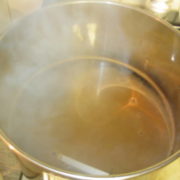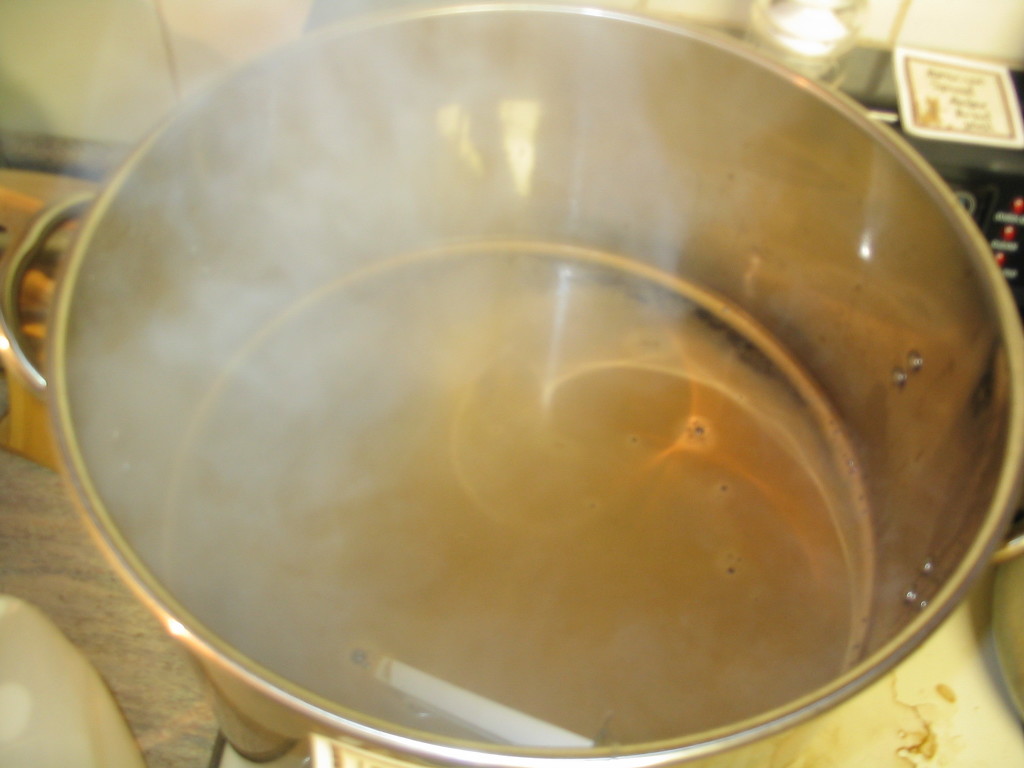Tips To Shorten Your Brew Day
Life can be hectic and when you have work or family commitments you often put off things like brewing because you know it’s going to take up a large part of your free time. Whilst it’s true that brewing good beer takes time and patience if you can plan and shave off time here and there it can mean you can shorten your brew day and fit in a beer in when you thought your schedule was full.
Table of Contents
Planning For Your Brew Day
If you sit and think about your last brew day did you do anything that could’ve been done a day or two before. Planning exactly what you need, going to do and processes you need can easily cut off time from your brew day.
I always measure my brewing liquor the night before in a fermenting bin, the main reason being that it give a chance for the chlorine in my tap water to evaporate out over night. Making sure your boiler and mash tuns are calibrated so you know how much is in each will ensure not only that you are brewing accurately but means you can quickly run off a certain volume of water or wort. You can determine the volume in each of your vessels either with markings on the vessel itself or like me you can grab something like a mash paddle and mark that so when you stick it in the pot you can tell the volume according to which mark your on.
Keep Your Brewing Equipment Clean
I would say that the most important part of making beer is cleaning and sanitising, I would also say it’s what 99.9% of what brewers least enjoy about it. If you spend most of your time toiling and scrubbing gunk and crust off your brewing equipment, your doing it wrong. As soon as you have finished using something clean it at the first possible chance you get. When you rack beer out of a carboy or fermenting bin, that ring around the top where the krausen was is only going to get harder to clean off the longer you leave it. Do it know and spend less time later cleaning stuff on your brew day. This is especially true with bottles rinse them after you drink one.
Measure Out Your Malt Early
I don’t know how well this will go down with everyone but you could consider milling and weighing your malt out the night before brew day and putting it in zip lock bags or air tight containers. I find weighing out grain a chore and it definitely saves time on brew day.
Know Your Brewery Inside and Out
Really knowing the limitations and attributes your equipment has is a real easy way to brew better beer and have the day run smoothly. I went out and bought a new mash tun recently and started brewing with it without really considering what implications it would have on my brewing. I didn’t account for the dead space in mash tun and ended up with about ¾ of a litre less than my intended brew length.
Knowing your equipment will make everything a lot easier and will save time because you can account for things like how long it takes to heat sparge water or bring wort to the boil. One thing I make sure I do is bring sparge water to temperature 20 minutes or so before the end of the mash, as soon as the mash is finished I can runoff and begin sparging without having to stand around
Get the Kettle On
Depending on your equipment you might be able to have your brewing liquor heat up on a timer. Obviously this will depend on you kettle but I know a number of home brewers and craft breweries have their brewing liquor coming up to temperature before they are even out of bed. If you have the option then this can be a real time saver allowing you to come along and just get things going, not having to stand around waiting for water to heat up.
No Sparge Brewing
This is a particularly good way to save time if you brew all grain and mashing. Ordinarily we would take our crushed malt, heat up our mash liquor and put it all in the mash tun. Leave it be for an hour then begin draining the first runnings. At this point we would either begin sprinkling sparge water on top of the grain bed (fly/continuous sparge) or wait for everything to drain out and then recharge with sparge water to make up final volume before boiling (batch sparge).
No sparge on the other hand would be a case of mashing you grains with the final pre-boil volume of mash liquor and then running that all off into your kettle and not bother rinsing the grains. Your first runnings are essentially 100% of the wort.
If I continuously sparge it can add up to an hour on my brewday, with no sparge at all I can run off all the wort fairly quickly and begin heating to a rolling boil as soon as the element in my boilers covered.
I think the main thing to bear in mind with no sparge brewing is you are going to lose efficiency. Therefore you have to increase the malt bill by around 25% to make up for the lost fermentables soaked in the grain bed. So your recipe that calls for 3.6kg / 8 lbs of grain will need to be upped to 4.5kg / 9.9 lb or more. The other thing to bear in mind is the capacity of your mash tun may limit the amount of beer you can brew.
Extract Some More Time
Consider brewing with extract. This is where extract brewers have an advantage of all grain brewers, a large part of the brew day for an all grain brewer is spent mashing and sparging, my runoff takes about half an hour on its own. If you are really pressed and can’t fit in an all grain brew day then you can use extract to take off a huge chunk of time.
Brew Small
Something I have been doing recently is brewing smaller quantities. My kettle takes an age to heat my ordinary brew length of 5 gallons so instead I have been doing 3 gallon batches, the time it takes to heat mash liquor and bring the wort to the boil is much less and this being the case I have been brewing more than usual and experimenting more. Some people may not like the idea of brewing smaller quantities but it could be something that works for you.
Keg It
Bottling can be a pain in the arse and take a good amount of time up, the easiest way to save time on bottling day is to either use bigger bottles or keg your beer. Obviously using bigger bottles for something like a Barley wine is not ideal but if you are bottling a session beer then there is no reason not to use bigger bottles or a keg. This makes is easy to avoid the hassle of sanitizing all those bottles.





Great article..one very small correction…”Do it now”, not “know”…I agree